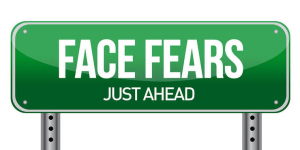With the NFL playoff games this weekend and with the upcoming Super Bowl on the minds of most Americans, making a friendly wager comes to mind. We will buy boxes, bet on our favorite teams and follow these terrific games with increased interest. There will be office pools and boxes at local pubs. It is hard to imagine the Super Bowl without some sort of wager.
In 2013, more than $98.3 million was bet with legal Las Vegas sports books on the Super Bowl. Add to that sum the massive social and black market wagering and the gross amount of wagers is quite spectacular. And the amount of money bet on professional football is just the tip of the iceberg in what has become a national epidemic.
The National Council on Problem Gambling reports that about 2 million Americans are pathological gamblers. Another four to six million Americans are described as “problem gamblers.” The chances are very good that you know someone who meets the criteria of a problem gambler.
Unfortunately, problem gambling has consequences that are not only financial. Problem gamblers tend to have legal, relationship, employment and family issues that may or may not lead to suicide. In the US, gambling addiction is a serious social problem. The good news is that there are identifiable symptoms and many treatment centres that specialise in gambling addiction.
Symptoms of the Problem Gambler
Lack of Control – Problem gamblers tend to think they have their habit under control but rarely do. They make time they do not have to gamble and wager money they cannot afford to lose to support their habit. Problem gamblers always feel they can stop gambling and many try but the fact is that without treatment the chances of beating the addiction are slight.
Cannot Differentiate Fun Money From Necessary Money – Problem gamblers always want more. Bets become larger to cut losses. These bettors tend to use money budgeted for other family and household necessities to support their habit. Problem gamblers are not wagering for entertainment or to add a little excitement to watching a contest. Instead, they are betting because they physically and mentally need to bet to enjoy the rush that betting beyond their means seems to provide.
Gambling From Behind – Problem gamblers often increase their wagers in efforts to recoup their losses. Typically, problem gamblers think they have a great betting strategy and uncommon insight but what they really want is the euphoric rush of living on the edge.
Resupply – Like any addict, the issue of resupply is never far from the problem gambler’s active mind. They spend days and nights figuring out how to raise the money for the next big score. Often, they resort to crazy schemes to support their habit, just as heroin addicts and alcoholics do.
Priorities – Problem gamblers often lose track of their priorities They disappear from friends and family and miss special events. They become secretive about their money management and regard their gambling habit as their personal business but have no control or budget. They place the rush of the wager ahead of their relationships.
Emotional Baggage – Problem gamblers have emotional baggage. Frustration over commonplace chores, irritability with friends and family, deep mood swings and strong remorseful feelings are warning signs that the habit is out of control. Typically, problem gamblers are distracted by job responsibilities and can be characterised by a lack of ambition.
Affordable wagering can be fun and enjoyable but should never be consuming. When gambling gets out of control, problems will surely follow. There is a big difference between a fun wager that you can lose with no repercussions and a gambling problem. If you know someone who is addicted to gambling, feel free to call Gamblers Anonymous or visit the website at http://www.gamblersanonymous.org
Do you have a gambling story, feel free to drop us a comment below and we can start chatting.
Hiland Doolittle
Images: Feature







